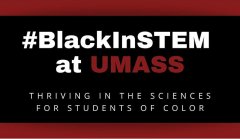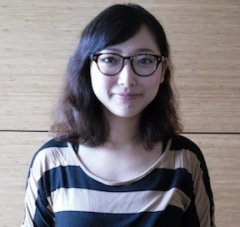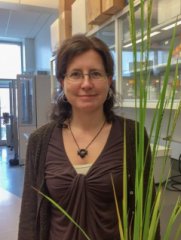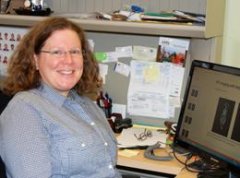News & Announcements
Mass Life Sciences Awards $2 Million in Capital Funds to IALS Research
Mass Life Sciences Awards $2 Million in Capital Funds to IALS Research
The Massachusetts Life Sciences Center (MLSC) this week announced an award of $2 million in capital grants to be shared by four of the campus’s Core Facilities managed by the Institute for Applied Life Sciences (IALS). The funds are for the purchase of hardware and software, analytical and other equipment, as well as research supplies and reagents.
IALS Core Facilities receiving the support are:
- Light Microscopy, directed by James Chambers, for the enhancement of the UMass Amherst Light Microscopy Facility for cutting-edge workforce training.
- Flow Cytometry, directed by Amy Burnside, to update cell sorter, spectral analyzer cytometer, and high throughput sampler.
- Mass Spectrometry, directed by Steve Eyles, for the acquisition of Synapt G2-32k Mass Spectrometer for native mass spectrometry.
- Nuclear Magnetic Resonance (NMR), directed by Jasna Fejzo, for the purchase of a SampleJet, a high-throughput sample changing robot for NMR.
- Center for Human Health and Performance, directed by Michael Busa, plus industry partner Embr, for “Artificial Intelligence for Menopause Symptoms (AIMS).”
#BlackInSTEM: Thriving in the Sciences for Students of Color
#BlackInSTEM: Thriving in the Sciences for Students of Color
CNS partnered with the Colleges of Engineering and Computer and Information Sciences to host a virtual #BlackInSTEM panel, in which nearly 150 people participated.
In this great time of uncertainty, there are also opportunities for a better tomorrow. The global pandemic and national awakening to racial violence has challenged us to consider our relationship to each other, our institutions, and established academic and social structures. #BlackInSTEM at UMass contributes to this conversation by providing a forum for Black and non-Black students or alumni of color to connect with and hear from Black faculty, postdoctoral researchers, and graduate students as they navigate careers in higher education.
Panelists
Gerald B. Downes, PhD, Associate Professor of Biology
Brittany Johnson, PhD, Postdoctoral Researcher, College of Information & Computer Sciences
Shannon Roberts, PhD, Assistant Professor, Mechanical & Industrial Engineering
Wilmore Webley, PhD, Associate Professor, Microbiology; Director, Pre-Med Advising
Saman Nayyab Receives Fellowship from the Male Contraceptive Initiative (MCI)
Saman Nayyab Receives Fellowship from the Male Contraceptive Initiative (MCI)
Saman Nayyab was appointed as a 2020 Research Fellow by the Male Contraceptive Initiative (MCI), a private non-profit foundation whose objective is to advocate for and promote the development of reversible non-hormonal male contraception. MCI Fellows will each receive $100,000 over the next two years to support their research. The support provided to MCI Fellows allows them to focus on the research, publish data, and build the background they need to sustain a long career as an investigator.
Saman is a PhD candidate in Dr. Pablo Visconti’s lab studying the role of testis specific serine kinases (TSSKs) on male fertility. TSSKs are kinases present in both germ cells and mature sperm, leading to the hypothesis that they are essential for sperm differentiation and maturation. This MCI fellowship allows Saman to learn advanced instrumental techniques and develop impressive collaborations to target TSSKs as novel male contraceptives. Congratulations on this prestigious award, Saman! Read more
Food scientist receives a $434,215 grant from the USDA to develop a solution for cleaning peanut butter off food processing equipment
Food scientist receives a $434,215 grant from the USDA to develop a solution for cleaning peanut butter off food processing equipment
From home bakers to commercial food producers, everyone knows that cleaning peanut butter off utensils and out of bowls is a tricky, sticky proposition. That’s because of the high-fat content of peanuts and the chemical reality that water and oil don’t mix.
To address the more serious implications, University of Massachusetts Amherst food scientist Lynne McLandsborough has received a $434,215 grant from the USDA to develop an oil-based system to clean and sanitize food processing equipment without water, reducing the high risk for Salmonella contamination associated with nuts. Read more
Study Shows Detailed Molecular Workings of a Key System in Learning and Memory Formation
Study Shows Detailed Molecular Workings of a Key System in Learning and Memory Formation
One of the new realities in biomedical research is that it’s increasingly difficult to use a general approach to score advances. Now, investigations into disease mechanisms, for example, are often conducted at the molecular level by specialists who dedicate years to interrogating a single protein or signaling pathway.
One such scientist is biochemist Margaret Stratton at the University of Massachusetts Amherst, whose lab reports how they used advanced sequencing technology to clear up uncertainty and determine all variants of a single protein/enzyme known as calcium/calmodulin-dependent protein kinase II (CaMKII) in the hippocampus, the brain’s memory center.
Stratton and first authors Roman Sloutsky and Noelle Dziedzic, with others, report in Science Signaling that they found an unexpected new role for the hub domain, or organizational center of the CaMKII molecular complex. Stratton says, “In addition to this known role, we show that this domain affects how sensitive CaMKII is to calcium; it acts like a tuner for sensitivity. This was a surprise. It opens a whole new area for investigation. We also show evidence for how we think it works at the molecular level.” Read more
UMass ADVANCE Announces 2020-21 Faculty Fellows
UMass ADVANCE Announces 2020-21 Faculty Fellows
UMass ADVANCE is pleased to announce the 2020-2021 cohort of ADVANCE Faculty Fellows. The 39 selected faculty, each representing different departments, will be partnering with the UMass ADVANCE leadership team to promote gender equity for faculty at UMass. Through a combination of research, programming, and interventions UMass ADVANCE seeks to understand and address systemic and intersectional inequalities to lay the groundwork for a fairer, more equitable, diverse and inclusive campus.
Congratulations to the MCB recipients of this award (Li-Jun Ma, Lynne McLandsborough and Sarah Pallas), and to all of the faculty fellows! Read more
Di Chu PhD Dissertation Defense
Di Chu PhD Dissertation Defense
Monday, August 24, 2020
10:00 AM
Zoom link: Please contact mcb@mcb.umass.edu to be included on the email list for this announcement
Dissertation Title: "A Potential Pharmacological Chaperone for Human Lysosomal Neuraminidase 1"
Advisor: Scott Garman
Matthew Metcalf PhD Dissertation Defense
Matthew Metcalf PhD Dissertation Defense
Friday, August 21, 2020
11:00 AM
Zoom link: Please contact mcb@mcb.umass.edu to be included on the email list for this announcement
Dissertation Title: "A Rational Design Approach to Developing Second Generation Fabry Disease Treatments"
Advisor: Scott Garman
Ana Caicedo Receives an Alexander von Humboldt Research Award
Ana Caicedo Receives an Alexander von Humboldt Research Award
Evolutionary biologist Ana Caicedo, associate professor of biology, has received an Alexander von Humboldt Research Award to support her collaboration with Detlef Weigel, head of the molecular biology department and executive director of the Max Plank Institute for Developmental Biology in Tübingen, Germany. Caicedo spent the recent spring semester there as a guest researcher while on sabbatical.
She studies how plants adapt to new environments such as those created by agriculture. Her research focuses on the domestication of crops – a recent study traced the evolution of tomatoes – and the evolution of agricultural weeds, such as weedy rice.
She says of the honor, “I’m delighted at being given this opportunity to work with collaborators in Germany. This award is particularly meaningful to me, given that many of Humboldt’s insights came from his explorations of South America, which is where I grew up.” Read more
Michelle Farkas Named Scialog Fellow
Michelle Farkas Named Scialog Fellow
Research Corporation for Science Advancement (RCSA) has named Michelle Farkas, chemistry, one of 13 new Fellows for its Scialog: Chemical Machinery of the Cell (CMC) initiative.
Co-sponsored by RCSA and the Gordon and Betty Moore Foundation, Scialog: Chemical Machinery of the Cell aims to catalyze breakthroughs in our understanding of chemical processes in the living cell that will lead to a new era of advancement in cell biology.
Scialog is short for “science + dialog.” As part of each multiyear initiative, a diverse and inclusive cohort of Fellows is selected from multiple disciplines and institutions across the U.S. and Canada to maximize creative thinking and innovative ideas. Read more







